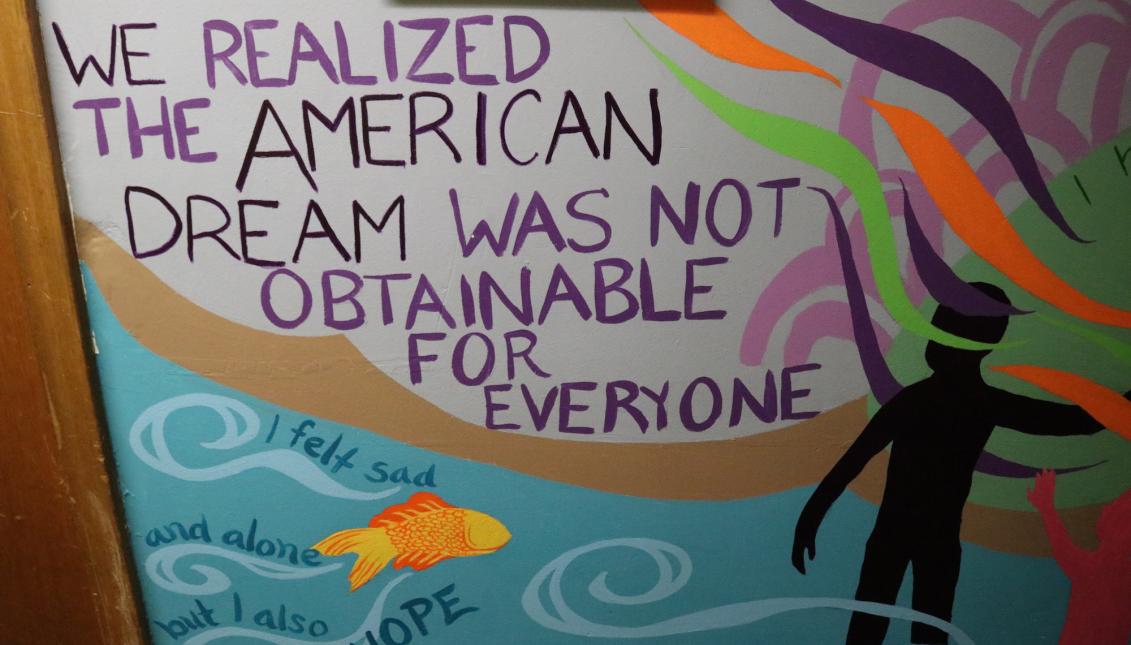
Publicly-funded immigration defense programs work, and PA’s just got more funding
Philly increases PAIFUP funding, a defense coalition for detained immigrants at risk for deportation.
The judicial process in the United States is broken, but nowhere is this more true than within immigration court, which isn't really a true court system for many reasons.
Immigration courts operate within the Department of Justice (DOJ), the same law enforcement agency charged with prosecuting criminal immigration cases in federal courts. At proceedings held near the border, and especially under former President Donald Trump’s administration, the flaws enabled immigration courts to be transformed into extensions of the DOJ’s enforcement agency rather than an institution designed to allow due process.
Amid ongoing calls to move immigration courts out of the DOJ, there is also the integral issue that immigrants don’t have a right to a lawyer — only at their own expense.
When an immigrant is in removal proceedings, they are legally allowed to be represented by counsel, but only if they can access and pay for the service themselves.
This opens several potential barriers that prevent a detained immigrant from being able to access a lawyer — from their ability to afford it, language barriers, cultural obstacles, education level, and access to evidence and witnesses outside of the detention facility.
Studies have shown that having a lawyer makes all the difference in whether someone will be deported or not, back to a country they risked everything to leave.
In a 2019 study by Penn State Law, it found that 77% of detained immigrants in Pennsylvania did not have representation. The study’s findings supported the hypothesis that individuals are much more likely to file a claim for relief when they have legal representation.
The study recommended that Pennsylvania “should fund and implement a public defender-style program for detained immigrants in removal proceedings to improve fairness and due process.”
An estimated 70% of immigrants in detention have no legal representation.
— Vera Institute of Justice (@verainstitute) June 10, 2021
But publicly funded deportation defense programs work: People with legal representation are up to 10 times more likely to be granted the right to remain in the United States.https://t.co/egMsq8zBMB
There is evidence that publicly-funded deportation defense programs work.
The Pennsylvania Immigrant Family Unity Project (PAIFUP) was launched in 2019, just months before Penn State Law released its report. It is the state’s first publicly-funded defense counsel project for immigrants facing deportation.
In its first year of providing free legal representation to detained immigrants in Pennsylvania, PAIFUP represented 38 clients and released 13 to their families, The Inquirer’s Jeff Gammage reported. The next year, despite limitations from the pandemic, PAIFUP was able to represent 49 clients and release 18.
“When we were starting, the Penn State report in 2019 showed 77% of people at the York immigration court did not have counsel. So really, really high, said Jonah Eaton, Director of Legal Services at the Nationalities Service Center and supervisor of PAIFUP.
He said the latest numbers from the Vera Institute of Justice show a number at around 66%.
“We certainly must be part of it,” Eaton said.
It’s vital work that can’t be accomplished without funding.
RELATED CONTENT
Philadelphia City Council gave preliminary approval to a budget deal late Thursday night after a weeks-long battle on how to best address housing, affordability, homelessness, and affordability in the city.
Within that budget came $300,000 in funding for PAIFUP, an increase of $100,000 from the previous year.
“This is a small project. But our funding has consistently and slowly been going up,” Eaton said.
In 2020, PAIFUP faced a budget battle over Philadelphia’s funds allocation amid the COVID-19 pandemic, but because of advocacy from community organizations, the coalition managed to get the funding from the city restored at $200,000.
Despite the 50% increase in funds from the city this year, the number is nowhere near the sum that richer cities see, like New York City or San Francisco.
For the fiscal year 2021, New York City Council approved $28 million allocated for Immigrant services, including$16.6 million for the New York Immigrant Family Unity Project (NYIFUP), the nation’s first public defender system to assist detained immigrants facing deportation proceedings.
“Quite a bit larger than what we’re looking at,” Eaton said.
With the Pennsylvania state legislature unlikely to put significant dollars to helping immigrant proceedings of this nature, lawyers aren’t expecting that sort of figure in the near future.
“We obviously hope that changes, that we can convince even Republicans in Harrisburg that it’s just a really basic fundamental fairness and due process issue of people not getting a fair day in court. But I think that’s a hard sell,” Eaton said.
For now, PAIFUP is looking forward to a much-needed staffing increase, and to put forward the city’s funding toward transportation to detention centers, interpreters, phone call payment, and more to try to litigate the cases properly.
“Starting small and slowly building our way up,” Eaton said. “This program could easily grow to be 10 times the size it is now, to really make a dent on the problem of people getting deported without having a lawyer.











LEAVE A COMMENT: